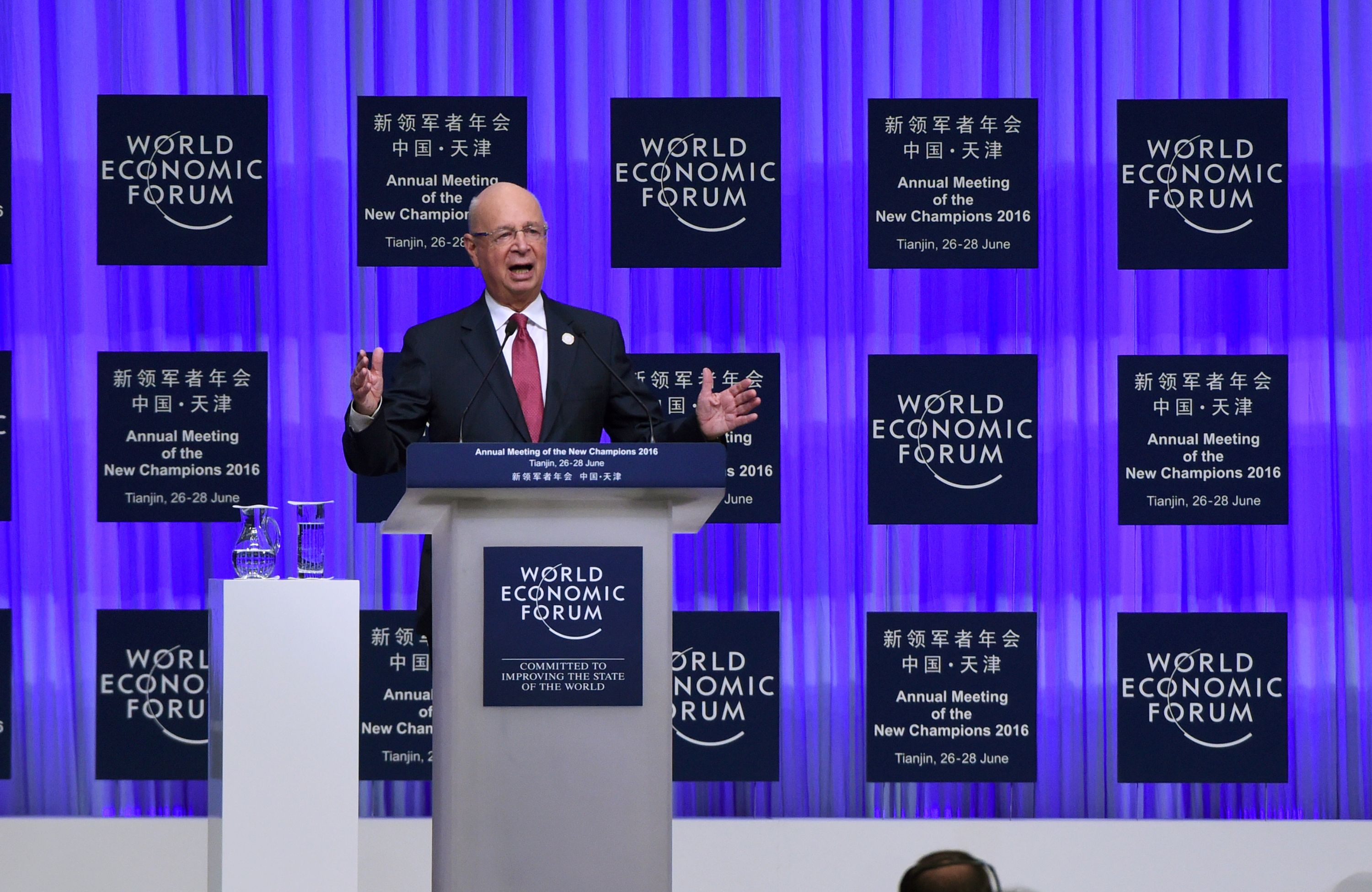What Are Crypto ETFs? A Beginner's Guide
The year started with a bang, as U.S. regulators finally gave 10 spot Bitcoin exchange-traded funds (ETFs) the go-ahead after years of clawing, scratching, and screaming.
In the ensuing days banking titans like BlackRock, Fidelity, and Grayscale launched their ETFs, sending the price of BTC surging past $47,500. The entire crypto market rallied, too.
So, ask yourself, what does any of this mean, and why should you care?
It's not obvious that crypto ETFs are bullish for Bitcoin's long-term price. Although the immediate news surged the price past $47,500, triggering a rally among other cryptocurrencies, Bitcoin sunk 18% in the following weeks.
So why would a crypto ETF matter? If an ETF is a basket of securities yet the Bitcoin ETF only has Bitcoin, why not just buy Bitcoin?
Today we're going to answer that question and more. Here's everything you need to know about crypto ETFs, the good, bad, and ugly.
What are Crypto ETFs?
An ETF is a type of fund traded on major exchanges such as the NYSE or NASDAQ, mirroring an underlying asset. For example, a Gold ETF, while traded on an exchange, is underpinned by physical gold.
To put this into perspective, if one ETF unit signifies one ounce of gold, and ten million such units are distributed among a million people (ten units each), the ETF's custodian securely holds ten million ounces of gold. The same principle applies to Bitcoin
Another way to think of ETFs is like a basket of different investments all rolled into one. So, by investing in an ETF, you get exposure to many different companies or asset classes simultaneously. This is still a popular investment method because it's low-risk and diversifies your portfolio.
There's even an ETF called the "Vanguard Total Stock Market Index Fund ETF" that lets you invest in the entire stock market. It's pretty cool.
So, where does Bitcoin fit into all this?
Benefits of Crypto ETFs
Put simply, a crypto ETF allows dad, mom, and grandma to invest in Bitcoin easily. That's pretty much it.
Right now investing in Bitcoin is still pretty hard for most people. Your options are to download an app people are vaguely familiar with like Coinbase, Gemini, or Binance. Keep in mind that many people trust these less because of the FTX scandal.
You could buy some from one of those shady ATMs in a convenience store.
Or, perhaps the easiest way, buy Bitcoin on PayPal or CashApp.
Although most of these options are popular amongst Gen Z and Millennials, it's still pretty hard for the average Joe to invest in Bitcoin. That's where crypto ETFs come in.
By investing in Bitcoin through an ETF you can rest easy knowing that your crypto is safely stored and that you don't have to worry about security risks or losing your password. Moreover, a spot ETF of Bitcoin opens doors for 401ks, Roth IRAs, and other tax-free earnings accounts.
Bitcoin ETFs also offer a level of security and trust that is appealing to more traditional investors. As mentioned earlier, major players like BlackRock and Fidelity are getting involved which adds credibility to the market and could potentially attract more institutional investors.
That's who's getting the best use out of crypto ETFs. Big banks. It's an easy-peasy way to track Bitcoin's price in a legal framework they can wrap their heads around. So, average Joes and Janes, while you technically can buy into it, many devout faithful in the Bitcoin community still repeat the phrase: "Not your keys, not your crypto."
6 Options of Crypto ETFs
Several options are available for investing in crypto ETFs, each with unique features. Leading the pack, Fidelity has secured approval for its proprietary Spot Bitcoin ETF, the Fidelity Wise Origin Bitcoin Fund (FBTC). Some of the other popular ones include:
-
Charles Schwab Bitcoin Futures ETF (BITF): This is a futures-based ETF that tracks the price of Bitcoin through derivatives rather than holding actual BTC.
-
Bitwise: The world's largest crypto index fund manager
-
Grayscale: With over $50 billion in assets under management, this is currently the largest crypto ETF, holding and tracking the price of BTC.
-
BlackRock: One of the first major financial institutions to propose a Bitcoin ETF, much to the chagrin of people who criticize the bank's strong push for ESG
-
Robinhood: One of the most popular brokerages in the world has listed all 11 spot ETFs on their platform for download.
-
WisdomTree: After a failed attempt in 2019, WisdomTree has made it clear they're serious about launching their crypto ETFs.
(FEEs,
Risks and Considerations
The big risk is gold.
Gold? Why gold? Well, many economists have pointed this out before: Gold goes up with assets like stocks and crypto. It's not an inflation hedge, although it's touted like one.
This happens because gold has ETFs on Wall Street; there are futures, derivatives, and options. Gold no longer comes in packages, boxes, or bags. It isn't physical anymore. And while there are spot ETFs that keep a 1:1 storage of it, many investors don't seem to care which defeats the purpose of gold. The same risk can be said of Bitcoin.
Wasn't Satoshi Nakamoto's creation of the asset in 2009 a way to avoid traditional, corrupt assets like stocks and gold?
Heck, this is why a quarter of American Millennials who earn $100,000 in individual or own $50,000 in investable assets, are either holding or using cryptocurrencies.
Another survey, commissioned by the independent research firm Provoke Insights, asked 1,000 online investors in the U.S., ages 20 through 65 about stock exchanges, cryptocurrency exchanges, and 401(k)s. 43% of millennial respondents said they trusted cryptocurrency exchanges more than U.S.-controlled assets.
Crypto is being accepted by the one group that it was supposed to get away from: Big Banks.
Many can argue that crypto needs that sort of adoption to reach wider audiences, but it raises this risk nonetheless.
Ethereum ETF
An Ethereum ETF will be the next to hit the market.
What will it do to the price?
Might go up. Could go down though.
In case you don't know, Ethereum is a blockchain that has its own cryptocurrency called Ether. It's currently considered the number two-ranked crypto after Bitcoin in terms of market capitalization and value.
Standard Chartered has projected that an Ethereum ETF may gain approval as early as May 23, marking the final deadline for the initial round of applications. This development is significant, given that Bitcoin ETFs were greenlit on their respective final deadlines.
To support this claim, Standard Chartered analyzed the SEC's position on ETH, noting that the regulatory body has refrained from categorizing ETH as a security in prior filings. Furthermore, the existence of a regulated ETH futures contract listed on the Chicago Mercantile Exchange (CME) lends additional credibility
By the time you read this we might have to update this article. But until then, get your coffee, sit back, and wait.
Final Thought
The banking system can only play in synthetic Bitcoin.
With exchange-supply at an almost 5-year low, and with new Boomer and Gen X interest (and leverage via ETFs), we could see a supply shock sending the price upward again.
The upshot is that crypto ETFs will greatly allow more traditional investors to enter the market; the crypto space is rapidly changing. However, they come with the problem of allowing big banks to manipulate and control assets that were originally created to be decentralized.
Keep this in mind when considering investing through an ETF.
As always, do your own research and stay informed before making any financial decisions.












